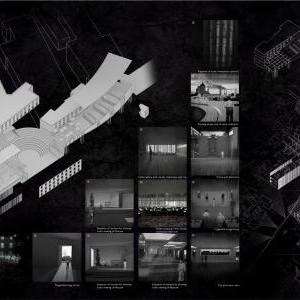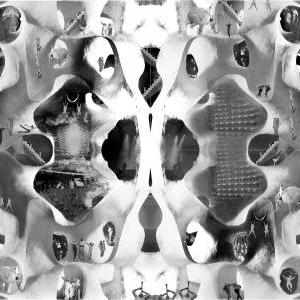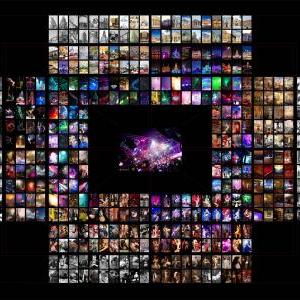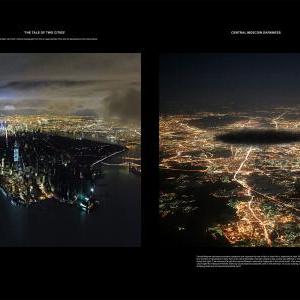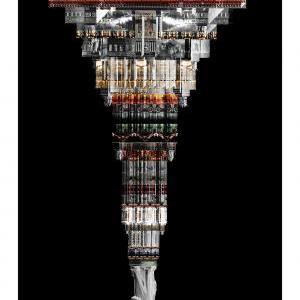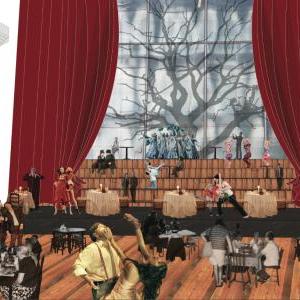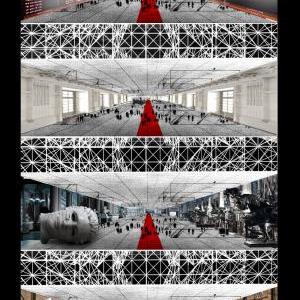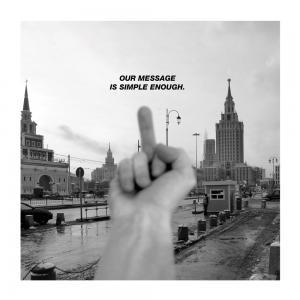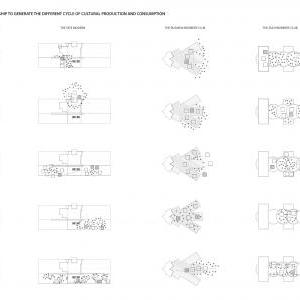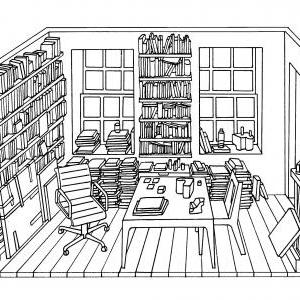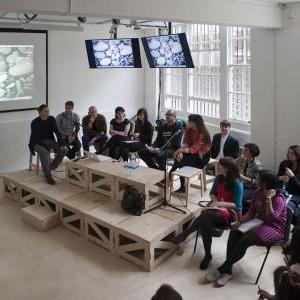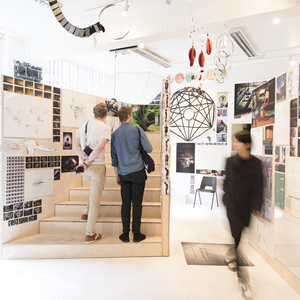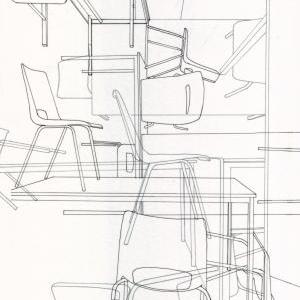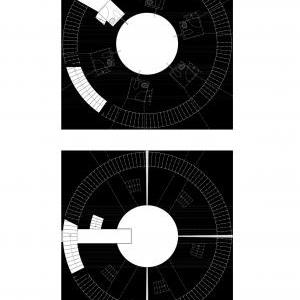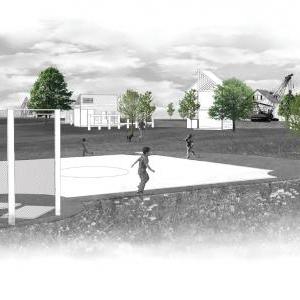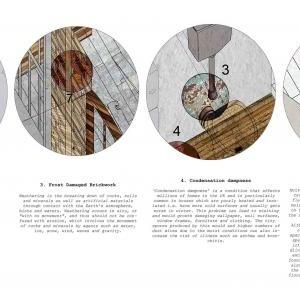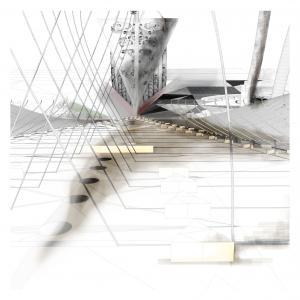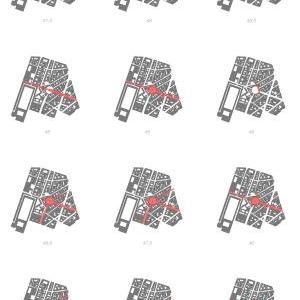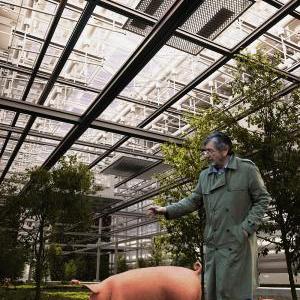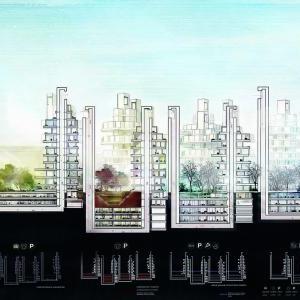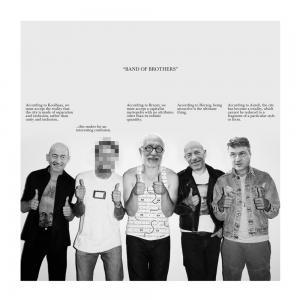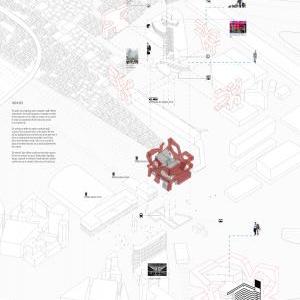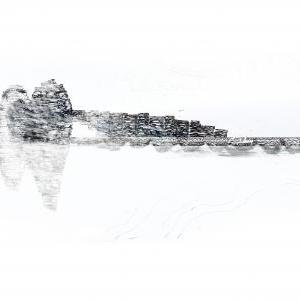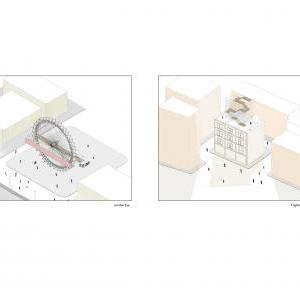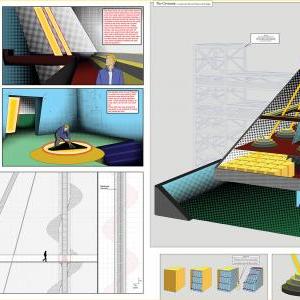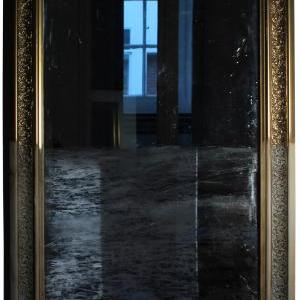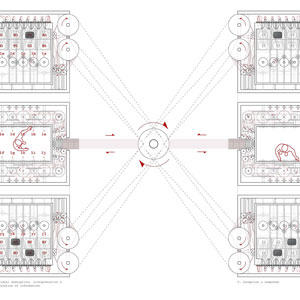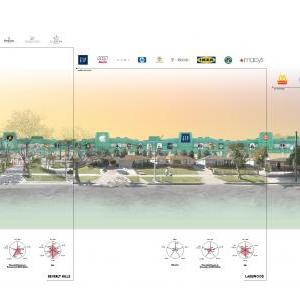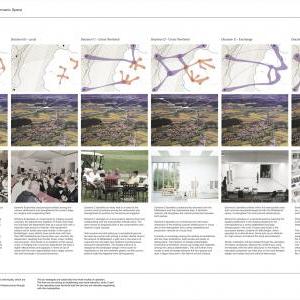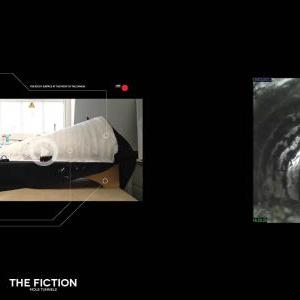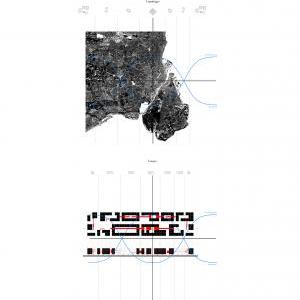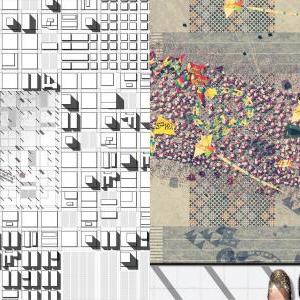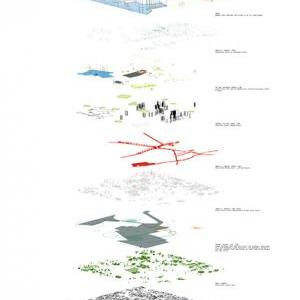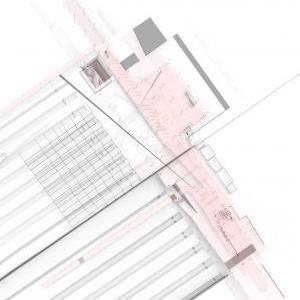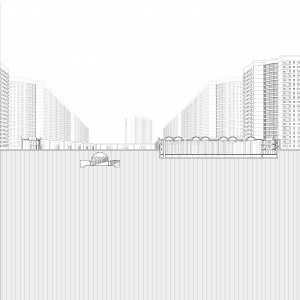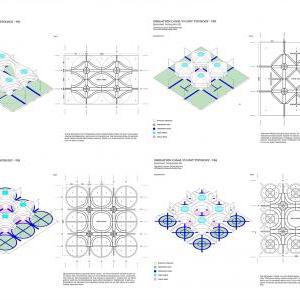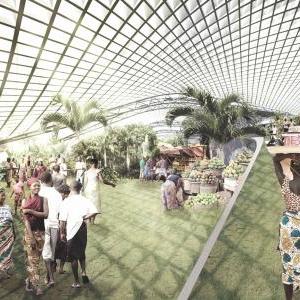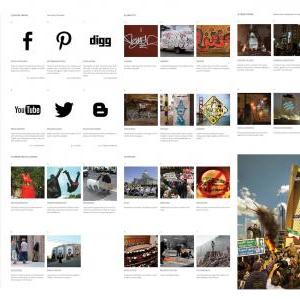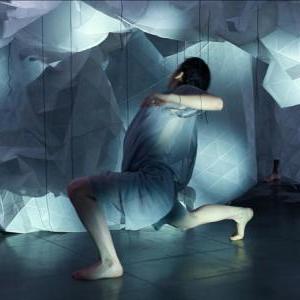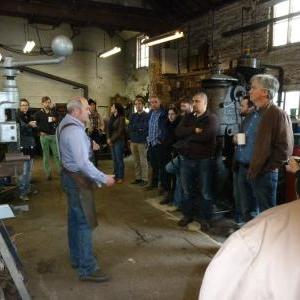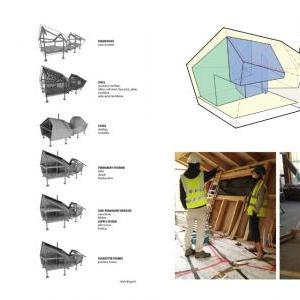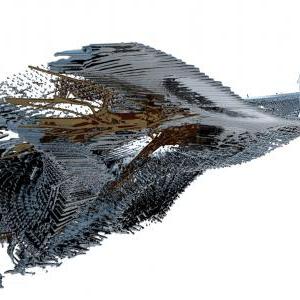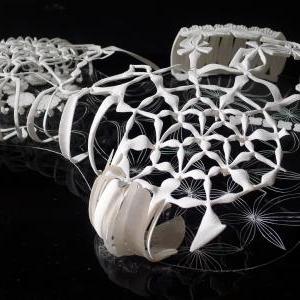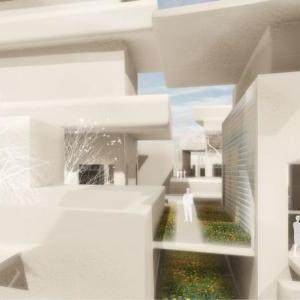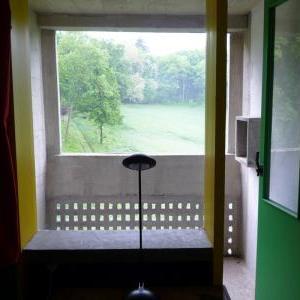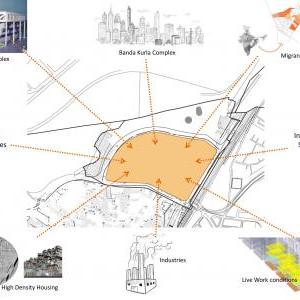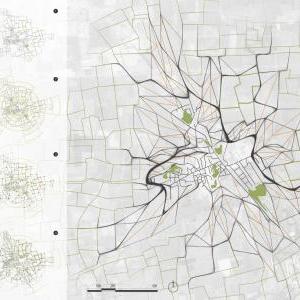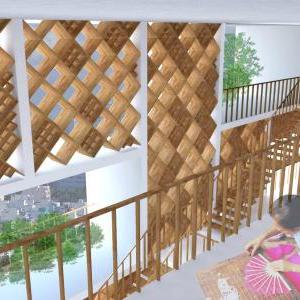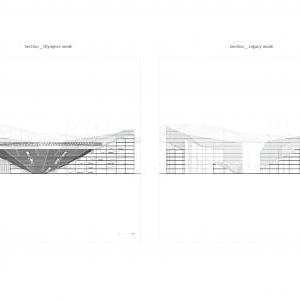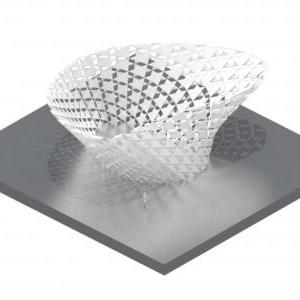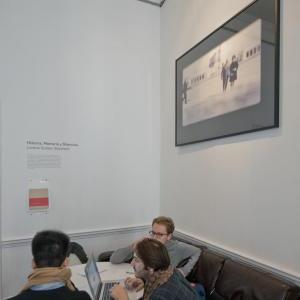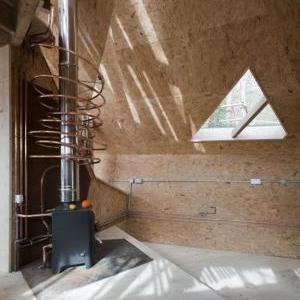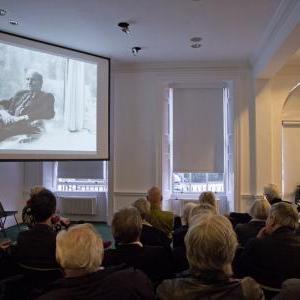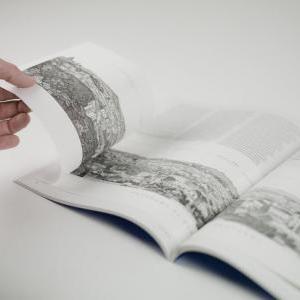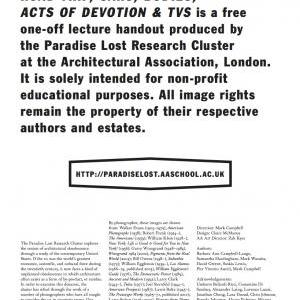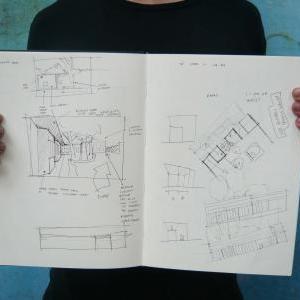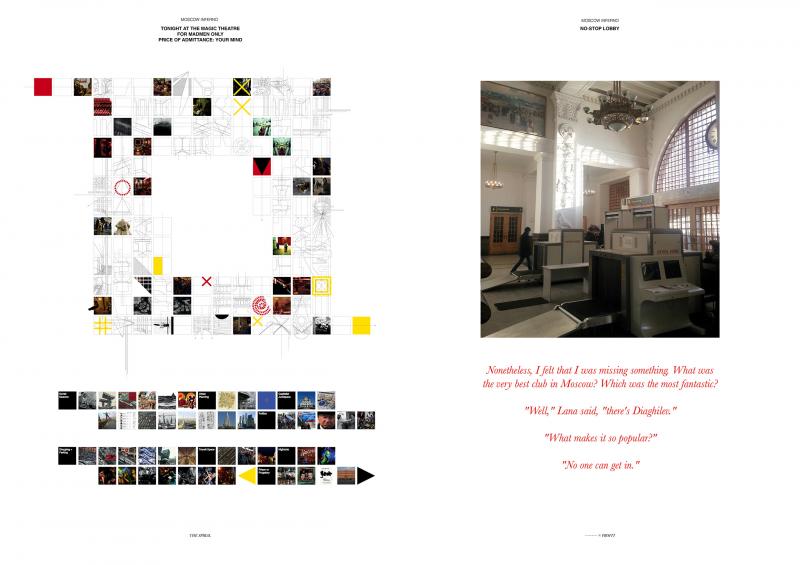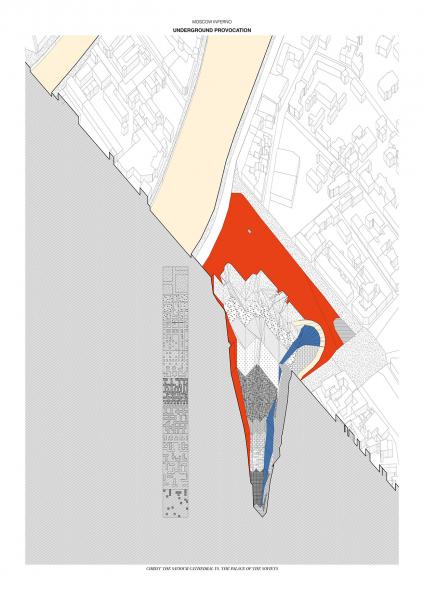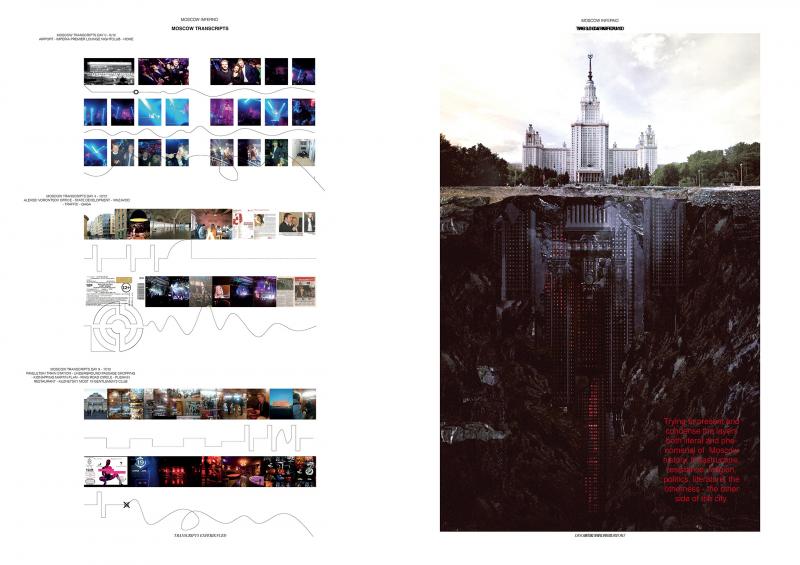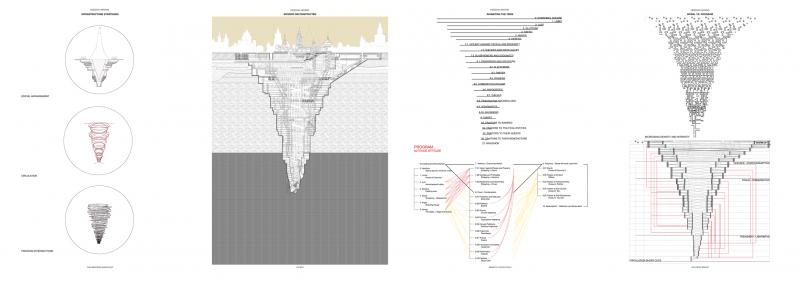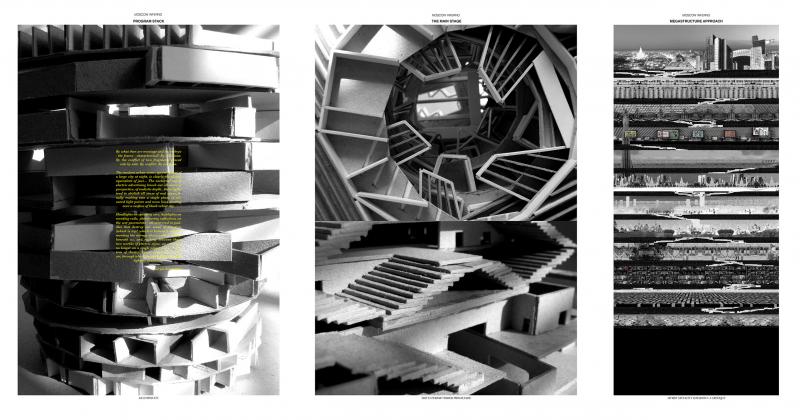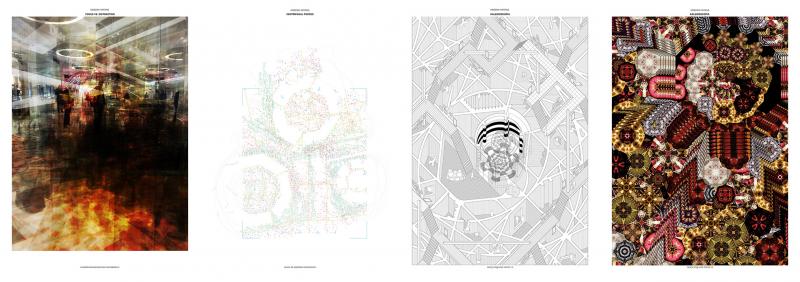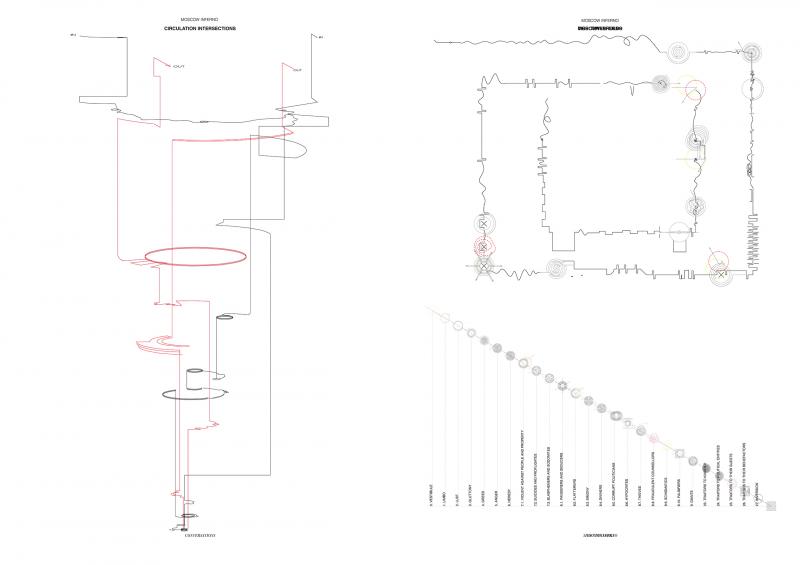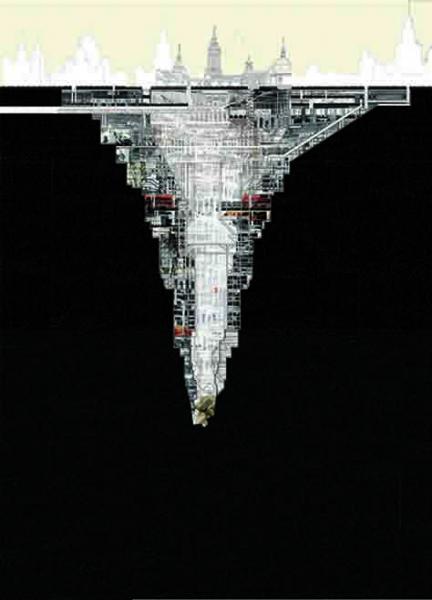Intermediate 7 develops conceptual models and diagrammatic frameworks that mediate between urban systems, architectural precedents and design approaches. We focused on visionary social machines in the context of Moscow’s nightlife in order to explore the ‘condenser club’ – the ultimate mixer and catalyst. Emphasising pragmatic research, infrastructural logic and relaxed methods, the projects delineated three areas of enquiry.
First, we examined the boundaries between the city and the ‘anti-city’. Dissident zones and decadent ‘infernos’ tantalised us with illusions of escape or entrapment. Acting as blenders and separators, nested megastructures collapsed numerous fragments and constructed trajectories along interwoven transcripts. These dystopian-realist scenarios remained aptly in-between fantastic provocations and pragmatic solutions to the city’s ills. Second, we synthesised infrastructures of flow and organisation to generate hybrid typologies.
We engineered social systems: networks and circuits loaded with programme. Conveyors of food chains, spines of art-factories and corridors of metro-labyrinths played on reversals of service and spectacle.
These decorated diagrams linked functionalist structures with intricate shapes and surfaces. Finally, we explored audience/performer relation-ships in adaptable sets. We injected dormant landmarks with dynamic mixtures of elements to facilitate mergers and crossovers. From flying-zoos and banya-bars to mood-tunnels, theatrical devices choreographed movements, framed images and staged atmospheres. As kaleidoscopic centrifuges, extravagant infrastructures and social transformers, our condensers dealt with extremes of functional intensity, material density and visual excess. Spectacular machines affected the operational appearance of the city, as captured in our diagrammatic matrices, hybrid drawings and visual scenarios.
Staff
Maria Fedorchenko
Tatiana von Preussen
Thanks to our workshop guests
João Bravo da Costa
Dirk Lellau
Jessica Reynolds
Gergely Kovacs
Ingrid Shroeder
Antoine Vaxelaire
Thanks to
Joseph Bedford
Brendon Carlin
Mark Campbell
Barbara-Ann Campbell-Lange
Monia De Marchi
Kenneth Fraser
Maria Mileeva
Kostas Grigoriadis
Eugene Han
Francesca Hughes
Sam Jacoby
Rosalie Kim
Fabrizio Matelana
Kathy O’Donnell
Damian Rogan
Nathalie Rozencwajg
Eva Sopeoglou
Brett Steele
Takero Shimazaki
Naiara Vegara
Thomas Weaver
and all other critics and guests
Maria Radjenovic
The project is a hyperbolas suggestion of an equally extreme architectural proposal, the Palace of the Soviets, which is turned upside down as a stolen voided landmark, an inverted monument. This is both done as a direct provocation and to try to channel the powerful connotations of the almost allegorical status of the Moscow underground. It is a centrifuge of cultural decadence, of greed of superficiality and of exhibitionism. The project is both an acknowledgment and commentary on the tragedy of the previous regime and a parody of the current.
Moscow is a city caught in the flux of a turbulent transition. By researching the violent and desirable traits of such a superfluous city, appropriating Hesse, I declare that Moscow is an ‘inferno’, and the architectural program is thus restructured through sin, with direct reference to Dante’s Divine Comedy. The comedy provides an architectural structure and programmatic organisation, latent to the hierarchical structure of the Palace of the Soviets, which in turn provides a framework upon which such a dystopian nightlife trap can be tested on.
The irony of the post-Soviet city is that maximum division and contrast provide maximum popularity, profit and desirability. Reacting to that condition by amplifying it, condensing all the vices of Moscow nightlife into a ‘no-stop’ lobby the project is an illustrated tragi-comedy of such absurdity, embodied in a cyclical dialectic between exhibitionism, voyeurism and spectatorship. Moscow is a spectacular theatre and the performance is human folly, by utilising simultaneous stage settings, juxtaposing multiple perspectives, as intentional compositional arrangements, the project is a kaleidoscopic mirror for the city of Moscow. What is hidden splintered and denied is turned into something condensed, solid and flaunted. This desire to do that/so is how I try to push the notion of a ‘condenser’. I believe this is a perfect fit for a host that combines both unrestrained power and control with an inherent set of conflicts that destroys the system.
